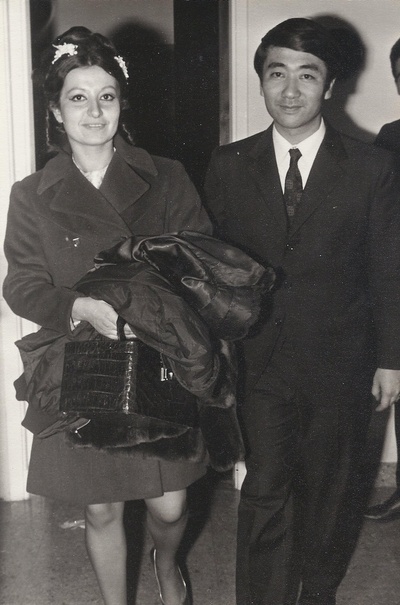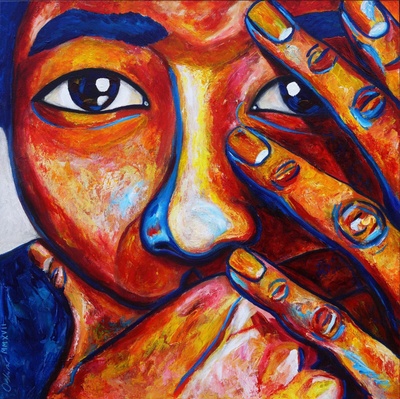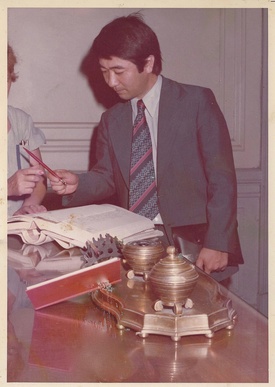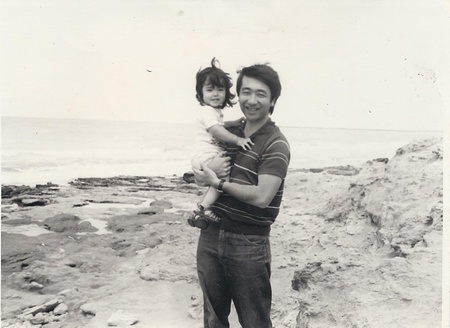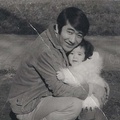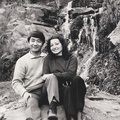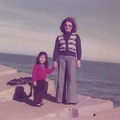What is plagiarism? Plagiarism is copying other people's works, giving them as your own without explicitly crediting where the information comes from (Royal Spanish Academy).
How many times have I dreamed of having a different family story to tell. I wish I had been accused of plagiarizing someone so I wouldn't have to face my reality. How many times did I lie to strangers so as not to have to tell what had happened to my old man, in reality we didn't know much, beyond what some witnesses said, that a group of armed task forces, dressed in civilian clothes, took him to Oscar Takashi Oshiro and his partner Enrique Gastón Courtade in a Ford Falcon never to return.
My mother made me hide at school that my father was missing. The school had more than 4,000 students in the Caballito neighborhood, it was very likely that I would attend the children of the repressors who took my father away or sympathizers of the regime.
If 'Beba', my mother, said it, then it was my white card to lie or dream with open eyes, to put my story as it should have been in a just world, where other men respected different ideas, where they worked to create a better world, where business or economic interests were not put first of all, where human rights were not trampled, a world where there was no kidnapping, torture, or killing. It was my escape to tell an alternative reality, when they asked me about my father I saw him working in court in front of the judge and jury giving an eloquent speech to defend workers.
If we were on vacation and the neighborhood kids asked about my dad, I would answer that Takashi had stayed in the Capital to work. Hiding had become a way of life: my life. Hiding from the world that absence present in everything we did was a stigma to carry in silence.
Few understood what was happening, few sympathized with our reality if they found out, it was easier to walk away from us, look the other way, blame my old man for being committed to his values, instead of putting the blame on the real ones. guilty In the 70s and 80s, while these things were happening, many preferred to ignore us, not associate with relatives of the disappeared, either out of fear or because it did not touch them directly, human rights was not a “trendy” issue.
More than once I heard them answer “he must have done something” and I had to fight. That's why it was better not to talk.
My mother always reminded me that my father was intelligent, kind, outgoing, friendly, altruistic and that if they took him away it was because he was very capable and not useless to society. The soldiers took the crème de la crème, a human potential with infinite possibilities that could have changed the course of Argentine history for the better.
For many years I tried to move forward without looking back. And although my external environment changed several times (I lived on the European continent), my internal world was always the same. I was escaping from myself, from my history, at least as far as my personal history was concerned, my oba (grandmother) was always my point of reference. The one that reminded me of my old man when my mother was no longer by my side.
I kept that tightness in my chest with me since that day in April 1977 when Takashi couldn't return home. I carried the weight around three continents until two years ago, due to a series of events or coincidences, it seemed to me that it was time to let out what I felt.
The first step was when a mutual friend told me about Andrés Asato, who was writing a book about the missing Nikkei in Argentina. After ten years of work I needed to finish it and one of the missing chapters was the one about my old man.
My friend asked me if by chance I had any missing relatives, since they had the same last name and were from Argentina. I reluctantly answered that he was my father, since I didn't talk about him.
These two years were hard to digest, but at the same time they gave me joy and new friendships that I did not expect to find. Since I didn't know very well where to go, I started doing what came naturally to me, I started making portraits of Takashi and then as I learned more stories about the other disappeared Nikkei, I felt that I had to paint them too. Which took me to Buenos Aires, to do the exhibition with family members and give a talk with Andrés Asato.
He was talking about his book; “They didn't know that we are seeds” and I about the art installation with the portraits. That was the second step, I thought that with the sample a stage was closed, but I discovered that it was just the tip of the iceberg, that I had much more to discover, to say. With each installation I see an evolution, whether artistic or interior.
I think I bring Takashi to my present in the form of a portrait because I don't want to leave him behind, I don't want to abandon him until I know that he is resting with my grandparents and my mother. Having Takashi's painting in front of me connects me with him, the feeling that connects me is no longer just sadness as it might have been in the past.
There is a saying that says: “You get what you get and you don't throw a fit.” You get what you get and you can't complain. I can't change the cards I was dealt and I don't think I would accept them differently, because that would mean not having had the parents I had or the family I have.
After “having opened the door” to a stranger, the only thing I knew about the writer Asato was that he knew my mother's search partner and that we had a mutual friend in the Japanese community in Argentina. Since I never do things by halves, I told myself I was going to get to the bottom of the matter. I answered each question to the best of my ability for the chapter dedicated to my old man and for the unanswered questions, I asked Takashi's friend/colleague or my aunt, my dad's sister.
I discovered new things after forty years and I appreciated my parents more, their difficult decisions, the happy moments we had that I had forgotten or preferred not to remember, because many times those moments hurt more when we know they are unrepeatable.
I was finally able to go through all those stages of loss that I had not been able to go through before since my old man, being missing, was in a kind of emotional limbo; neither alive nor dead and a very small part of me hoped to see him again. They say that without a body there is no crime, that is the cruel reality that the soldiers left us.
My cousin from Yonabaru called me last year telling me that her father who carries the butsudan (altar) of the Oshiro had integrated an “ihai” (ancestral plaque) with my father's name. It was another of those events that moved me and made me look for a little information on the subject. In these years I worried about everyday reality, with my feet firmly planted on the ground, now something else opened up to worry or think about.
I saw those butsudan customs at my friends' houses or the times I participated in obon with my relatives in Okinawa, I only saw it a little with my oba (grandmother), when every morning she would put a small cup of ocha (tea) in a A kind of altar with photos of my dad, my grandfather and my mother the few times I had returned to Argentina.
A few years ago I was invited to a group that deals with butsudan traditions on Facebook but I never participated, until I saw Pablo Moyano's documentary: “Broken Silence, 16 Nikkei”, which talked about the 16 missing members of the Japanese community. in Argentina where they interviewed the sister of Horacio Gushiken, also missing, whose remains were found thanks to some medium (Yuta from Okinawa).
I never thought before that it would be possible to find my father, but if two of the missing Nikkei were found, I think it could be a reality in the future, I hope not too distant, for me too.
I had never heard of yuta, what they did, and it never occurred to me that I could contact one. But again, chance would have it that one of my friends had a Yuta relative in Japan who was able to talk to my dad's cousin. He had never visited a yuta although he does live in Okinawa. But for his cousin Takashi and me he traveled two hours by car and met the yuta.
They called me on the phone while they were visiting her, they told her that my father had died and where he was buried in a common grave, but I could not yet verify the place, since I live outside the country. Hearing those words hit me like a cold steel stick. He said there was no doubt he was dead. Although it is difficult to believe in the paranormal, I realized that he had told me something I already knew.
Many people, whether friends, relatives or strangers, offer a hand. In the butsudan group I met another Nikkei from Peru, with my same last name. He had been the first to answer my question about the yuta (medium). With my new attitude I began to answer his questions. Months later, Roberto Oshiro wrote an article about my story, he was a little shy at first because he didn't know how I was going to react when I discovered that he had written an article. After reading it, I was shocked that he put himself in my shoes, something that few have the empathy to do.
I included the definition of the word plagiarism because they pointed out to me that Roberto was accused of plagiarism for writing about me. In reality, I shared Takashi's story with him, which leads me to my other theory: it is necessary to have a witness to recount the feat since the feat itself, without a witness, is forgotten.
In these last two years I discovered that many of the questions I asked myself were answered from different corners of the world. I decided to stop distrusting the world, trust my instinct more and be more open to discover where it takes me. I'm not going to name them all but they know who they are and I'm so grateful that they chose to give me an opportunity to be a part of their lives too.
I had many questions that always remained unknowns, but little by little the empty spaces were filled with answers that made sense to me. Friends of my old man kept showing up and giving me more information. I don't know why I was only able to face the past now, because before I wasn't ready to have answers, maybe saving is useless or maybe things come out when they have to come out. And here I am waiting to see what else I can find on this path that has opened. Without straining my hand, I will let more answers flow to me.
© 2018 Gaby Oshiro


